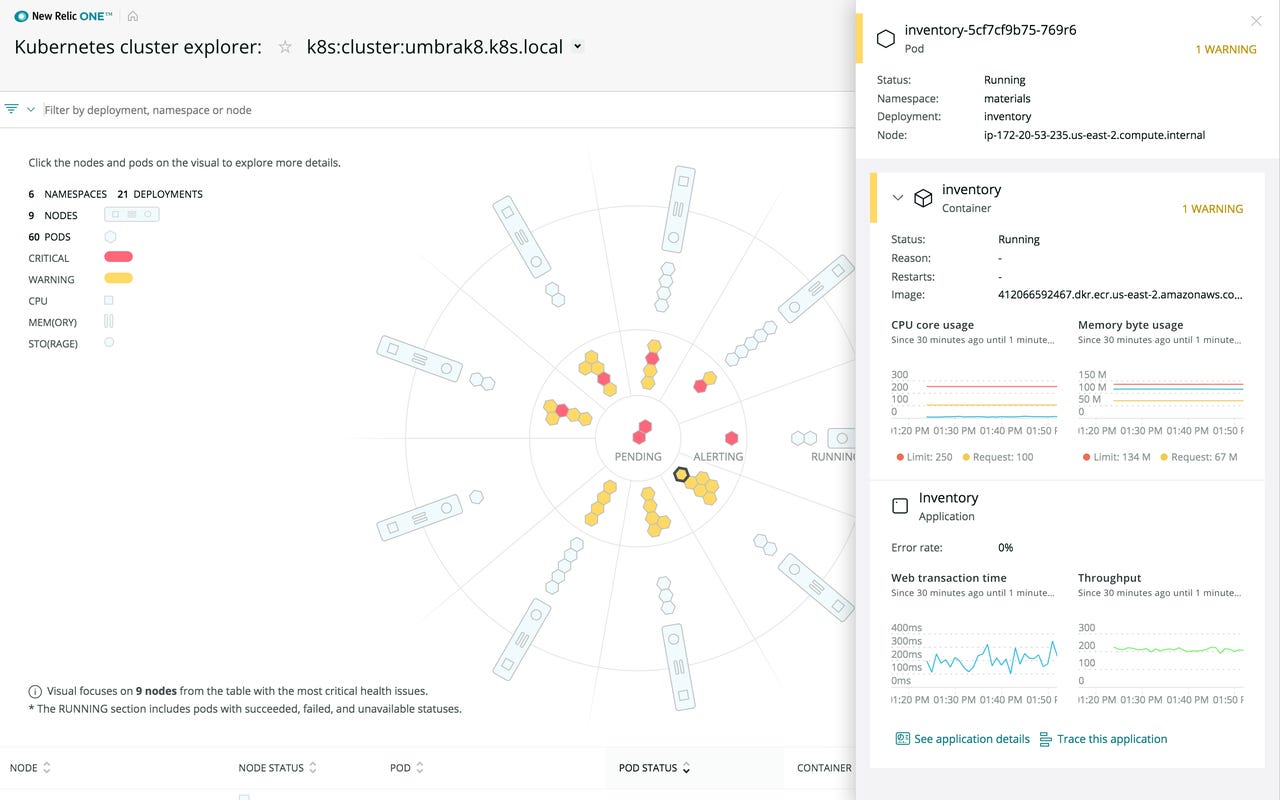New Relic rolls out New Relic One, aims to identify codependency of containers, microservices, cloud, and apps


A screenshot of New Relic One.
New Relic, which provides DevOps and application monitoring software, launched an extension to its platform called New Relic One that visualizes data and maps complex environments. The effort is part of New Relic CEO Lew Cirne's strategy to develop a unified DevOps platform.
The new features for New Relic One include monitoring for AWS Lambda, new dashboards, global search and cross-account service maps. In a nutshell, New Relic One unifies customer data across multiple accounts to highlight all of the services that are instrumented by DevOps teams for visibility. The company has built up some capabilities via the acquisitions of SignifAI and Kubernetes specialist CoScale.
According to Cirne, the crux of New Relic One is treating everything that needs to be instrumented as a entity. By defining entities, New Relic can map relationships and dependencies. An entity could be a mobile app, microservice, Kubernetes cluster or Lambda Function on AWS. "An entity is anything that you want to instrument that generates data, metrics and logs and doesn't run in isolation," explained Cirne. "It is pan enterprise scale."
Enterprises can have millions of entities with multiple instances, tools and teams working on them. In other words, the relationships can get complicated and hard to observe due to data silos and multiple applications and services. What used to be a dozen services that were independent are now hundreds due to fragmentation, containers and multi-cloud.
To Cirne, this entity approach makes it easier to determine co-dependencies in various enterprise environments that include cloud, hybrid and other services. Stitching together various systems can make companies more agile and faster to develop, but there are more co-dependencies.
Cirne said the goal of New Relic One was to develop a platform that would set it up for the next decade and provide context as environments become more complicated. "If we kept incrementally updating we'd get to a point where we'd struggle to innovate at the pace we need to," said Cirne. "We wanted a user experience that was ahead of where it had to go."
New Relic's goals were to make better use of the data it already collects from applications. "We can collect data on anything that runs in any production environment. We're capturing 16.5 million events every second," said Cirne. "There's so much more we can do with this data."
Features of New Relic One, which took 2 years to develop, include:
- A unified view of environments via Service Maps that highlight dependencies, which are critical when trouble shooting.
- Search and discovery to find entities across an enterprise.
- Dashboards that are improved.
- Business views that can be embedded into performance management dashboards.
- A new user experience.
- Tools that are included in New Relic Pro including AWS Lambda monitoring and Kubernetes data. The key to monitoring serverless compute services is knowing usage and how it relates to your cloud bill.
New Relic One will be included to paid subscribers with availability May 15. New Relic added that new features for logging and AIOps will be delivered in the months ahead.
Separately, New Relic delivered a fourth quarter loss of $15.4 million, or 30 cents a share, on revenue of $132.1 million, up from $98.4 million a year ago. Non-GAAP earnings were 13 cents a share.
Wall Street was expecting non-GAAP earnings of 6 cents a share on revenue of $128.1 million.
For the year, New Relic reported a loss of $33.1 million on revenue of $479.2 million, up 35 percent from fiscal 2018. On a non-GAAP basis, New Relic said fiscal 2019 earnings were 66 cents a share.
New Relic said it has 858 paid business accounts worth more than $100,000.
As for the outlook, New Relic projected first quarter revenue between $138 million and $140 million with non-GAAP earnings of 7 cents a share to 8 cents a share. For fiscal 2020, New Relic is projecting revenue between $600 million and $607 million with non-GAAP earnings of 54 cents a share to 62 cents a share.